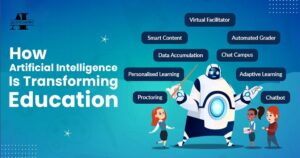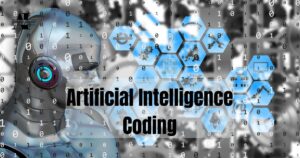Artificial intelligence (AI) is transforming the medical industry, offering new ways to diagnose, treat and monitor patients. By increasing accuracy and efficiency, AI is revolutionizing healthcare delivery. This technology is helping doctors make better decisions, discover new treatments, and provide personalized care. With promising developments on the horizon, the impact of AI in medicine is profound.
Machines can predict your health, diagnose diseases before symptoms appear, and tailor treatments just for you. This isn’t science fiction—it’s the power of artificial intelligence in medicine. AI is reshaping healthcare as we know it, offering breakthroughs that could save millions of lives. Curious about how this cutting-edge technology is changing the medical industry? Let’s dive in!
Technology is reshaping the medical field, combining cutting-edge innovation with human expertise to usher in a new era of healthcare. From accurate diagnostics to personalized treatments, these advances are opening up possibilities that once seemed unattainable. As this technology advances, it is turning the impossible into reality, changing how we understand and treat health.
What is AI in Medicine?
AI in medicine refers to the use of computer systems that can perform tasks that normally require human intelligence. These tasks include understanding language, recognizing images, and making decisions. In medicine, AI also helps diagnose diseases, predict patient outcomes, and prescribe treatments.
How AI is used in diagnostics
The most important use of AI in medicine is in diagnostics. Accurate diagnosis of the disease is very important for effective treatment. AI can analyze medical images, such as X-rays, MRIs, and CT scans, to detect abnormalities. For example, AI can help radiologists identify signs of cancer in imaging studies much earlier than traditional methods.
AI systems can also analyze data from blood tests and other lab results. They can compare this data to thousands of other cases to identify patterns. This helps doctors make a more accurate diagnosis. AI is particularly useful in detecting rare diseases that a human doctor might overlook.
AI in Patient Outcome Prediction
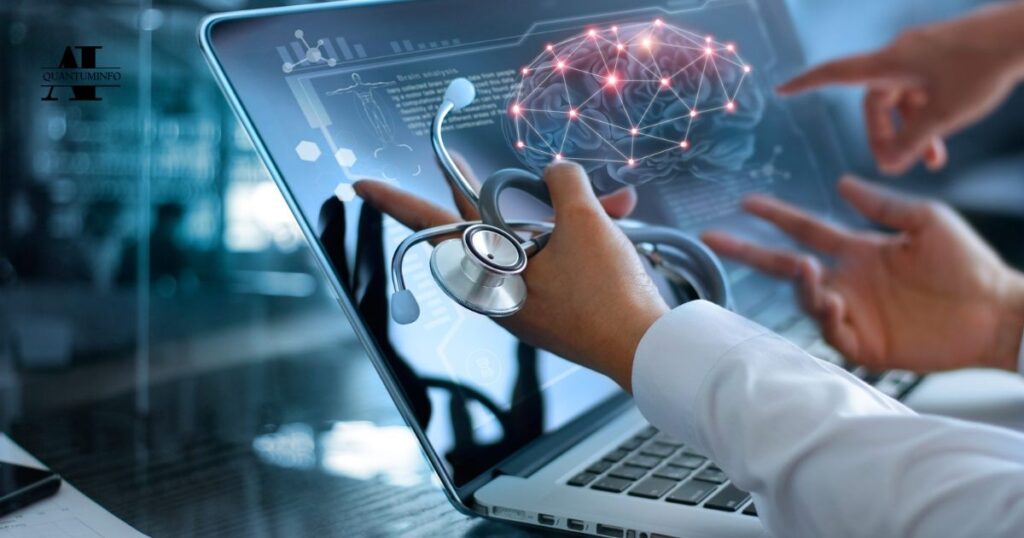
Another important impact of AI in medicine is predicting patient outcomes. AI can analyze a patient’s medical history, lifestyle, and genetic information to predict how they might respond to a particular treatment. This helps doctors choose the best course of action for each patient.
For example, AI can predict a patient’s likelihood of developing complications after surgery. This allows doctors to take precautions to reduce risks. AI can also help predict the spread of diseases, which is crucial in managing pandemics.
AI in Personalized Medicine
Personalized medicine is an approach where treatment is tailored to the individual patient. AI plays a key role in making personalized medicine a reality. By analyzing a patient’s genetic makeup, AI can help doctors choose the most effective treatments with the fewest side effects.
Here, AI Tools Shaping the Future of Education
For example, in cancer treatment, AI can identify which drugs might work for a particular patient based on their genetic profile. This not only improves the chances of success but also reduces the risk of adverse reactions.
AI in drug discovery
The process of discovering new drugs is long and expensive. It usually takes years of research and billions of dollars to bring a new drug to market. AI is accelerating this process. AI can analyze vast amounts of data to identify potential drug candidates. It can also predict how these drugs will interact with the human body.
This helps pharmaceutical companies focus on the most promising compounds, saving time and money. AI is also being used to repurpose existing drugs for new uses. This has been particularly useful in finding cures for diseases such as COVID-19.
AI in surgery
AI is also making a significant impact in the field of surgery. Robotic surgery is one of the most popular applications of AI in medicine. In robotic surgery, a surgeon controls a robot that performs surgery with extreme precision. AI helps guide the robot, ensuring the surgery is as accurate and safe as possible.
AI can also help plan surgeries. It can analyze the patient’s anatomy and suggest the best approach for surgery. This helps reduce the risk of complications and improve patient outcomes.
AI in telemedicine
Telemedicine involves providing health care remotely, often through video consultation. AI is enhancing telemedicine by providing tools that help doctors diagnose and treat patients without the need for in-person visits.
For example, AI-powered chatbots can ask patients about their symptoms and suggest possible diagnoses. This helps doctors prioritize cases that require immediate attention. AI can also analyze data from wearable devices, such as heart rate monitors, to provide doctors with real-time health information.
AI in Healthcare Data Management
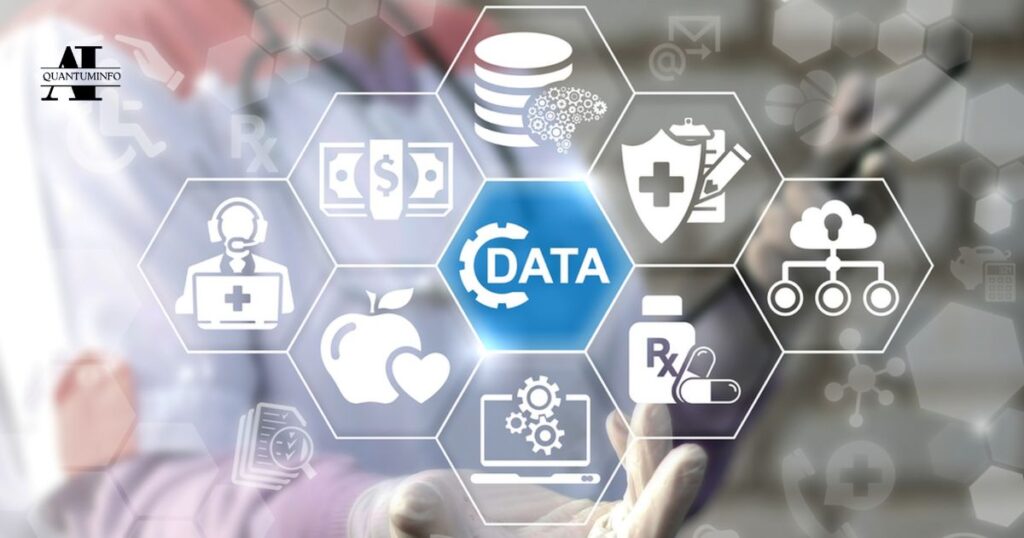
The medical industry generates large amounts of data every day. Managing this data is a huge challenge. AI is helping to organize and analyze this data more effectively. AI systems can process and analyze electronic health records (EHRs) to identify trends and patterns that can improve patient care.
For example, AI can identify patients who are at high risk of developing certain conditions, such as diabetes or heart disease. This allows doctors to intervene early and provide preventive care. AI is also helping reduce the paperwork burden for doctors, allowing them to spend more time with patients.
AI in medical research
Medical research is another area where AI is making a big impact. AI can analyze large datasets much faster than a human. This is particularly useful in fields such as genomics, where researchers need to analyze vast amounts of genetic data.
Here, Harnessing AI for Next-Gen Drug Discovery and Development
AI can identify patterns in this data that could lead to new treatments or a better understanding of diseases. AI is also helping to design clinical trials more efficiently, ensuring that new treatments are tested and approved quickly.
AI in patient care and monitoring
AI is also improving patient care and monitoring. AI-powered devices can monitor patients’ vital signs in real-time, alerting doctors to any changes that could indicate a problem. For example, AI can monitor a patient’s heart rate, blood pressure, and oxygen levels, providing early warning of conditions such as a heart attack or stroke.
AI is also being used in the management of chronic diseases such as diabetes. AI systems can help patients manage their condition by providing medication reminders, suggesting dietary changes, or recommending exercise.
Ethical considerations of AI in medicine
While AI offers many benefits, it also raises ethical concerns. One of the main concerns is privacy. AI systems require access to large amounts of personal data to function effectively. Ensuring that this data is kept secure and used only for its intended purpose.
Another concern is the potential for bias in AI systems. AI systems are only as good as the data they are trained on. If the data is biased, the AI system may also produce biased results. This may lead to unfair treatment of certain groups of patients.
Finally, there is the question of accountability. Who is responsible if an AI system goes wrong? This is a complex issue that needs to be addressed as AI becomes more integrated into the medical industry.
The future of AI in medicine
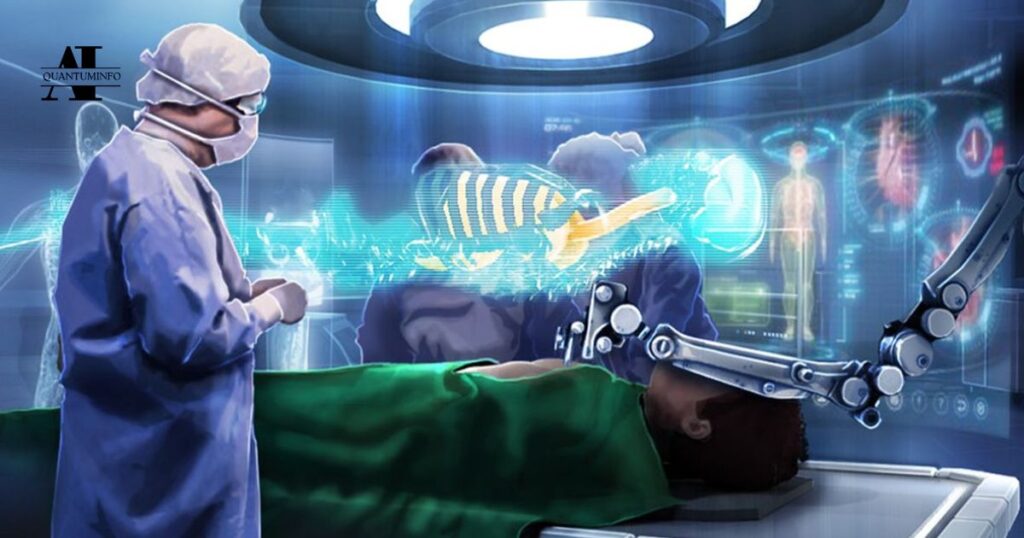
The future of AI in medicine is promising. As AI technology advances, it will play an even bigger role in healthcare. We can expect to see more AI-powered tools that help doctors diagnose and treat patients.
AI will also likely play a bigger role in personalized medicine, making treatments more effective and reducing side effects. In addition, AI will continue to streamline the drug discovery process, bringing new treatments to market faster.
However, as AI becomes more commonplace, it will be necessary to address the ethical challenges it poses. Ensuring that AI is used in a way that is fair, transparent, and accountable will be critical to its success in the medical industry.
Frequently Asked Questions
What is the role of AI in disease diagnosis?
AI helps doctors diagnose diseases by analyzing medical images and laboratory results with high accuracy.
How does AI help predict patient outcomes?
AI predicts patient outcomes by analyzing medical history, lifestyle, and genetics to guide treatment decisions.
What is personalized medicine, and how does AI contribute to it?
Personalized medicine tailors treatments to individuals, and AI analyzes genetic data to find the most effective treatments.
How is AI used in drug discovery, and what are its benefits?
AI accelerates drug discovery by analyzing data to find potential drugs, saving time and reducing costs.
What are the benefits of using AI in surgery?
AI improves surgical accuracy with robotic assistance and helps plan surgeries to minimize risks.
Final Thoughts
AI is having a profound impact on the medical industry. From diagnostics to personalized medicine, drug discovery, and patient care, AI is helping to make healthcare more efficient, accurate, and personalized. However, as with any new technology, the ethical implications of AI in medicine must be carefully considered. By addressing these challenges, we can ensure that AI continues to improve healthcare for everyone.


